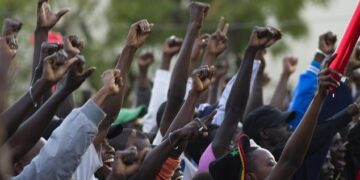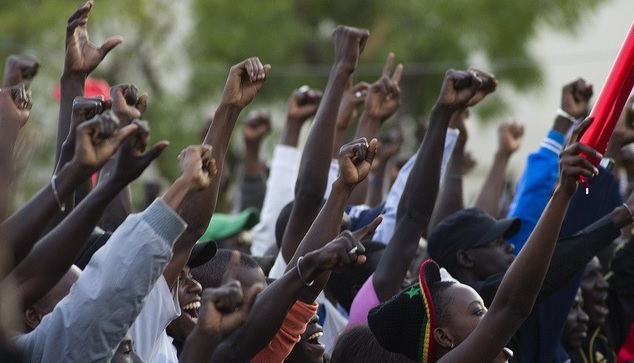By John Ikani
A new report by Afrobarometer paints a complex picture of democracy in Africa. While support has slipped in recent years, it remains stronger than in many other regions.
The report, based on surveys conducted in 30 African countries, found that two-thirds of respondents prefer democracy. However, this is down seven percentage points from a decade ago.
This decline coincides with a wave of military coups, particularly in West Africa, and rising public discontent with corruption and mismanagement.
Since 2020, Africa has witnessed eight successful military takeovers, fueling instability.
In addition, the continent’s young population has taken to the streets to protest against tax hikes and subsidy cuts implemented by often corrupt governments.
South Africa serves as a stark example. Mired in high unemployment, failing public services, and graft scandals, support for democracy has plummeted by 29 percentage points in the past decade, with only 43% of citizens favouring it.
Mali, another nation grappling with military rule following coups in 2020 and 2021, reflects a similar trend. While disapproval of military rule has fallen significantly, support for democracy has dropped by 23 percentage points to a mere 39%.
Afrobarometer emphasizes that declining support isn’t solely driven by economic woes. Public perception plays a crucial role. Africans are increasingly disillusioned with poorly run elections, rampant corruption, and a perceived lack of rule of law.
The report also reveals a decline in satisfaction with the functioning of democracy across Africa. This is partly attributed to the belief that economic hardship has worsened alongside increased corruption and impunity.
Interestingly, some stable democracies like South Africa, Botswana, and Mauritius have experienced the most significant drops in satisfaction. Conversely, some countries with authoritarian tendencies, including Tanzania, Zimbabwe, and Morocco, saw an increase in satisfaction with their existing systems.
The report raises a concerning trend – young Africans are showing more openness to military rule. This openness could be attributed to a combination of factors: trust in the military, frustration with the status quo, and a lack of experience with past military regimes.
Africa Still Prefers Democracy (for Now)
Despite the challenges, Afrobarometer highlights a crucial point – compared to Asia, the Middle East, and Latin America, democratic ideals still hold stronger ground in Africa.
Zambia, which recently ousted a corrupt leader, and Ethiopia, emerging from a devastating civil war, top the list for democratic preference. Additionally, Senegal’s recent election of an anti-establishment president exemplifies the continent’s continued desire for change through democratic means.
Summarily, democracy in Africa faces headwinds due to political instability and a perceived decline in its effectiveness. However, a significant portion of the population still favours democracy over other forms of government.
The continent stands at a crossroads, and the ability of democratic institutions to deliver on the aspirations of its people will determine the future of democracy in Africa.




































